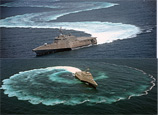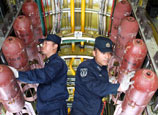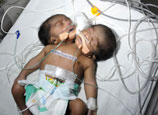
TRIPOLI, July 27 (Xinhua) -- Nearly 1,200 convicts have escaped from al-Kuifiya prison in Libya's eastern city of Benghazi on Saturday, a security official told Xinhua.
The mass outbreak came after a fierce riot during which some prisoners set fire to the prison complex, witnesses said; while the security official said some unidentified gunmen started to attack the prison from the outside at Saturday dawn.
Most of the convicts held in the prison face criminal charges and some were involved in supporting the regime of ex-leader Muammar Gaddafi, who was ousted in the domestic conflict in 2011, said the official.
Some of the escapees were recaptured by the police and security forces, who were ordered not to fire on the prisoners, as some of them were of foreign nationalities. However, according to another security source, who requested anonymity, three escapees were wounded when they were chased by prison guards.
Local media said the attack might be related to the anger of some citizens living nearby who are against the presence of a prison close to their homes. But no official remarks about the cause of the incident have come out.
Libyan Prime Minister Ali Zeidan said in a televised speech after the mass jailbreak that those who fled would be wanted by the authorities across the country. He also ordered to close the border crossing with Egypt to prevent their further escape.
Also on Saturday, protesters took to the street across Libya to denounce the killing of Abdelsalam al-Mosmary, a prominent activist and critic of the Muslim Brotherhood, who was shot dead on Friday. The Muslim Brotherhood is accused of being behind the assassination, while many demonstrators said the government is slow in responding to violence.
Two military officials were also killed in Benghazi on Friday. And it remains to be known whether the prison attack on Saturday is linked to these assassinations.
After ridding Gaddafi nearly two years ago, Libya is still far from enjoying tranquility and prosperity due to a weak central government, while the existence of various wartime local military councils poses continuous danger to the country's stability.
















 Working under 40 degrees Celsius
Working under 40 degrees Celsius


![]()
